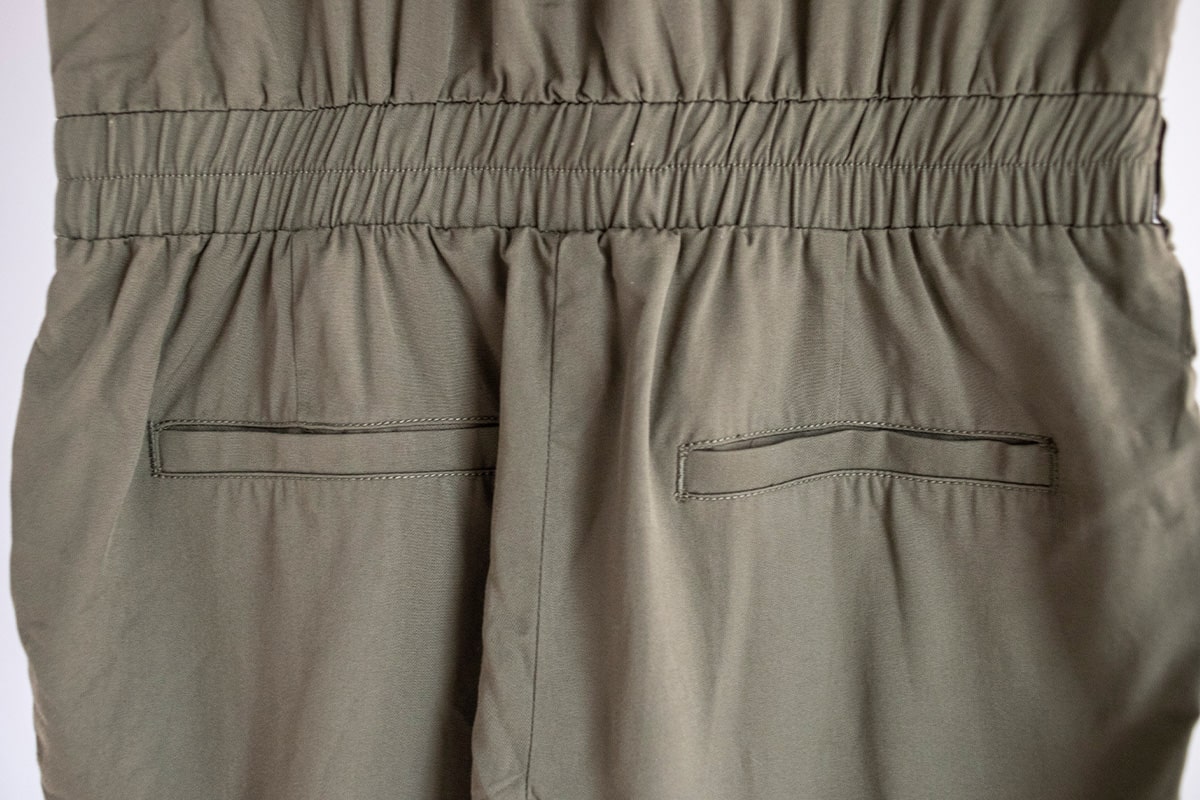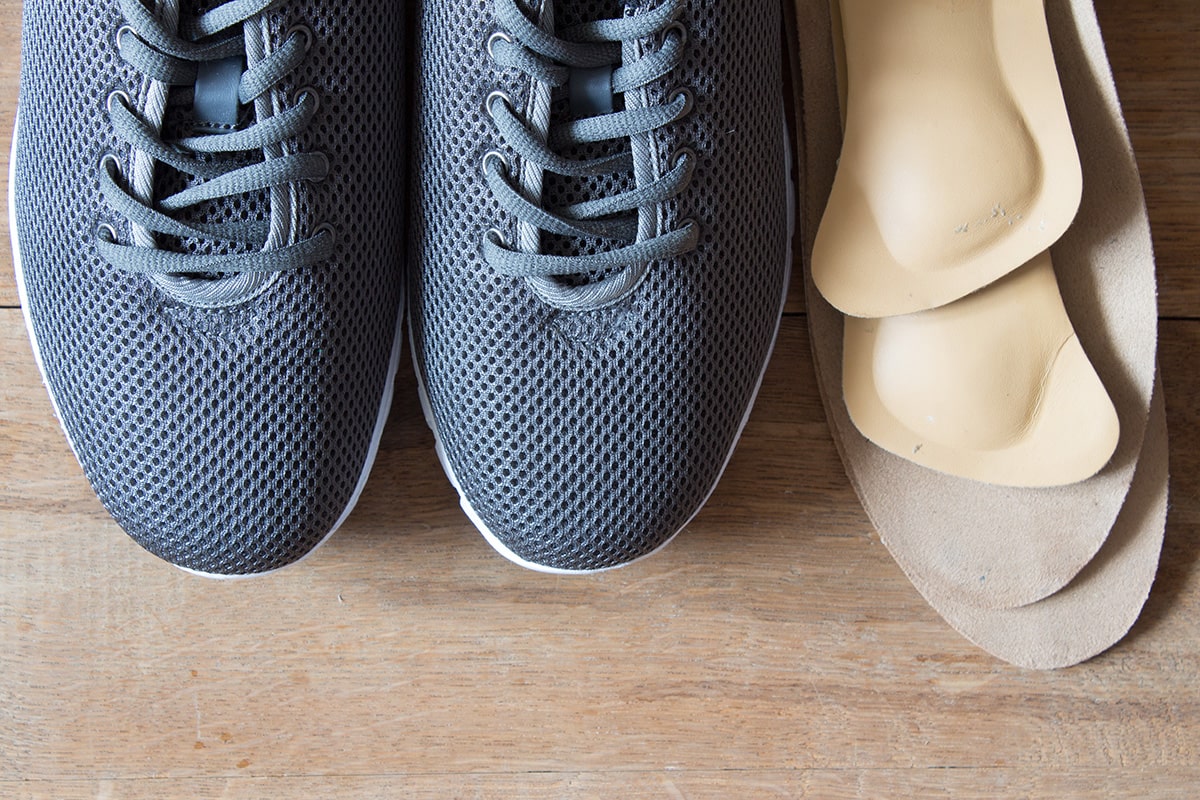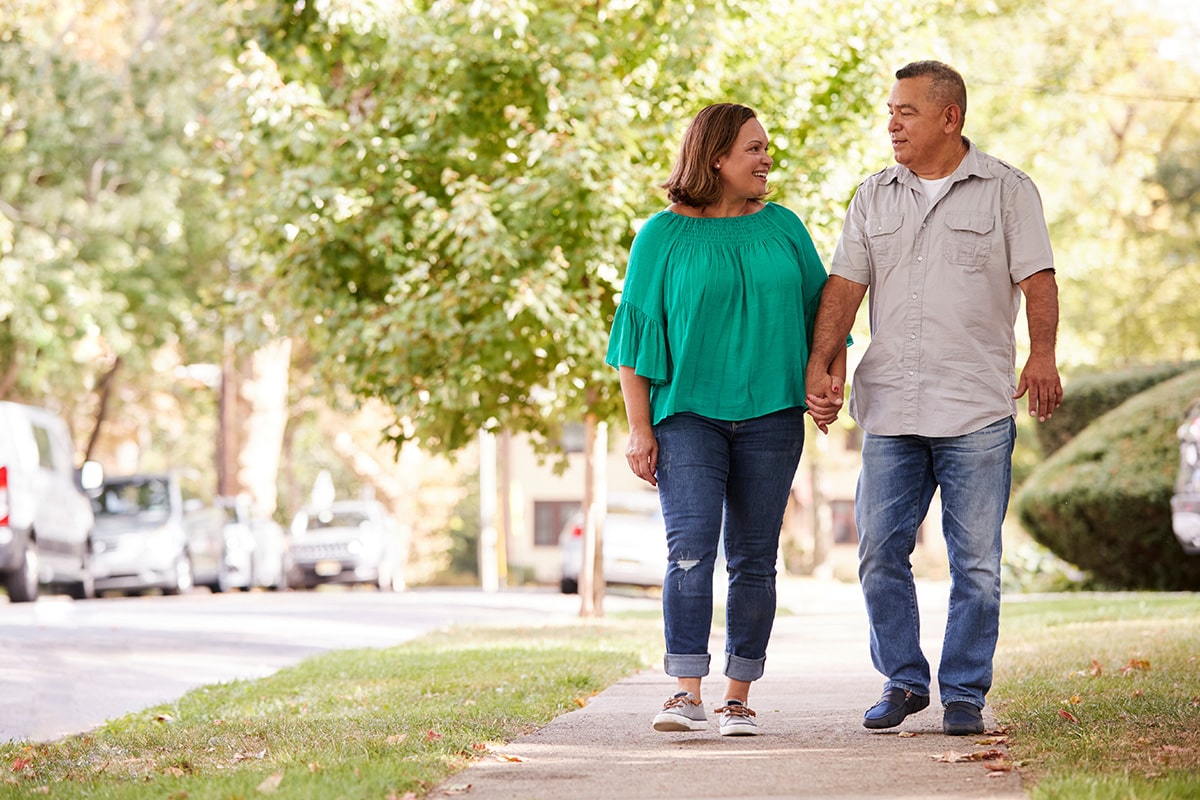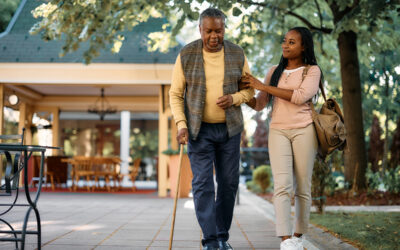June is National Safety Month! For people living with Parkinson’s disease, adaptive clothing can be a game changer for dressing easier, reducing risk of injury, and maintaining independence.
As Parkinson’s disease progresses, some may experience more severe tremors, cramps, and motor symptoms, making it difficult to accomplish daily tasks like getting dressed.
Adaptive clothing considers these symptoms in its design and functionality.
Types of Adaptive Clothing

Adaptive clothing comes in all varieties and ranges from undergarments to shoes.
Here are a few examples of types of adaptive clothing and how they can help.
- Pants with elastic waistbands. These are easier to pull up and down and come in all styles, from jeans to professional wear.
- Shirts with velcro or magnetic buttons. Buttons are notoriously challenging for people with PD, especially as they lose dexterity. Buying shirts with magnetic closures or even sewing velcro into existing clothing can alleviate the difficulty of manipulating buttons while getting dressed.
- Non-skid socks instead of slippers provide more grip and stability and reduce the risk of falling.
- Adaptive clothing tools such as dressing sticks, sock aid helpers, button hooks, or zipper pulls.
- Slip-on shoes or shoes with elastic laces, lace locks, or velcro closures.

Shoes, in particular, can have a marked impact on mobility. Studies have shown that using textured insoles positively impacts postural stability in people with PD, including improved gait, balance, and plantar sensation.
Even without textured insoles, hands-free shoes with extra support can go a long way to improve balance, gait, and foot deformity issues.
Popular Adaptive Apparel Brands
Here are a few popular adaptive clothing brands that offer various options for people with Parkinson’s disease.
- The Able Label offers a variety of clothing options for both men and women, including inclusive bras.
- AliMed offers a variety of dressing aids and clothing tools.
- JAM is an inclusive fashion label designed by two occupational therapists and disability support workers.
- Joe and Bella offers men’s and women’s adaptive apparel.
- Magna Ready offers men’s and women’s shirts, pants, dresses, sweatshirts, and more.
- Residential Essentials offers adaptive clothing with seniors in mind.
- Silverts has a full catalog of clothing and shoes for a variety of needs.
- Tommy Hilfiger’s Adaptive Collection features inclusive styles for all.
- Slick Chicks offers women’s underwear and bras with side closures and zippers.
Tips for Getting Dressed

Even with adaptive clothing, dressing with Parkinson’s disease can present its own set of challenges. There are several ways to simplify the dressing process and prioritize safety first.
- Dress after taking medication. Even if this requires waiting for an hour after waking, dressing once your medications have kicked in is advantageous.
- Do a few exercises to stretch your muscles and get a little more limber.
- Don’t rush to get dressed. Take your time to minimize stress and reduce the risk of falling.
- Gather all of your clothes before dressing so you don’t have to make multiple trips to and from the closet.
- Sit down while dressing, ideally on a surface that offers firm support and stability.
- Avoid certain fabrics, such as nylon and velour, that may create friction with certain surfaces, leading to falling and injury.
Clothing and Parkinson’s Disease

Dressing may become more difficult as your Parkinson’s symptoms advance. Adaptive apparel has made strides in both functionality and design to provide a variety of clothing options for people of all ages that help to alleviate these difficulties.
If you or a care partner ever need support for adaptive apparel resources, do not hesitate to reach out to the PCLA team!



0 Comments